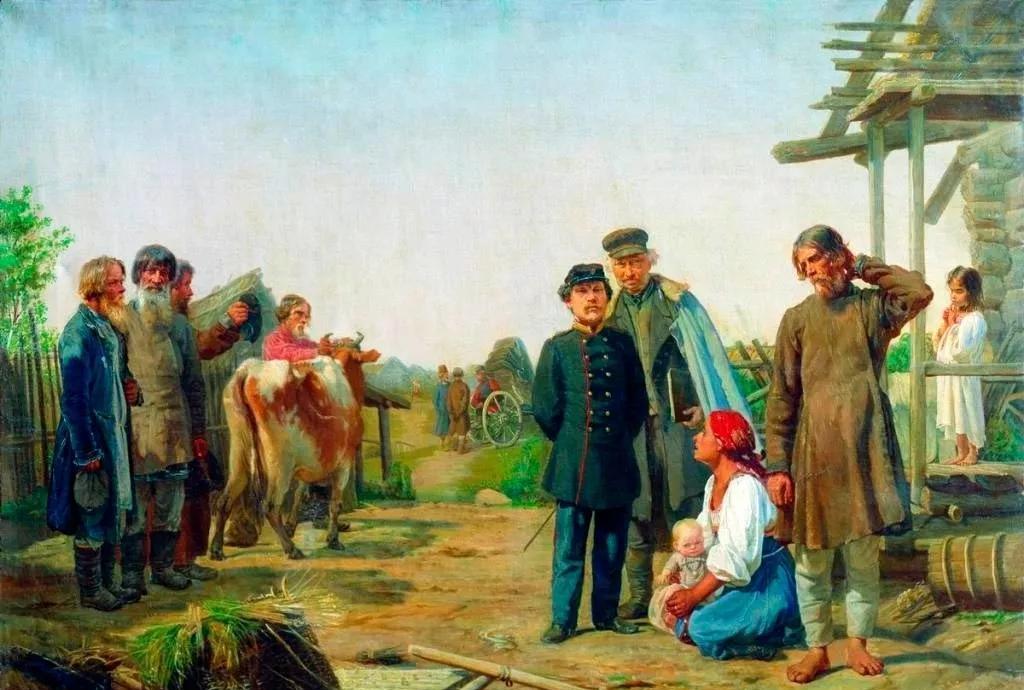When it comes to serfdom before Russia, one might have the following stereotypes: some people think that this is the most cruel slavery, while others think that serfdom is the care of the landlords for the peasants. So, how many serfs were there during the period of serfdom in Russia?
First, serfdom differed from ancient slavery in that the law recognized serfs as a person, not an object. The rights of the serf were greatly restricted, however, the law would punish the landlord who murdered the serf, and the ancient slave owner was not responsible for the life of his slave. In addition, the Church blessed the marriage of the serfs, which was recognized by law and not a "marriage" between slaves.

Of course, this is not to say that the serfs' life was comfortable. The serfs were dissatisfied with their position, as evidenced by the uprising led by Bolotnikov, Razin, and Pugachev, which sparked thousands of minor riots in Russia. But the peasants valued supporting their land more than individual freedom, and the serfs made ends meet on a "paternalistic but very limited welfare system." During the abolition of serfdom, the state adopted a relatively friendly attitude towards the land-owning nobles, and the results were very frustrating to the peasants. In fact, the most fundamental resentment of the peasants is not serfdom itself, but the right to land. Farmers, who expect to receive the land god gave them, now face a double shortcoming: some of the "their" land has been taken away, and they are also told to spend money to buy the remaining land, which is full of suspicion and hatred.
In fact, serfdom was only established in Russia at the end of the 15th century, and serfdom maintained the basic system of the state. In 1649 it was forbidden for peasants to change their places of residence without authorization, which applied not only to landlord peasants but also to other peasants. In 1797, Emperor Paul I limited servitude (the era of Russian serfdom forced peasants to work for landlords without compensation) to three days a week. In the 1840s, Nicholas I banned the sale of farmers from the land.
Serfdom in Russia could ally itself with conservatives in France, but disappeared in the mid-14th century. There was no serfdom in England. In Germany and Austria, feudal relations with the peasantry were abolished in the late 18th and first half of the 19th century. But there was never a landlord there who could buy and sell farmers. Not all feudal relations were serfdom.
Once upon a time, not all peasants in Russia were serfs. Even during Catherine's reign, the nobility was given a large amount of land, and privately owned peasants made up only half of the rural population of the Russian Empire. At the end of the 18th century, the proportion of landlord farmers in Russia peaked and then began to decline. The other half of the peasants were tied to state-owned land, and they had greater freedom and were subject to taxes.
Before the abolition of serfdom in Russia in 1861, farmers starved in the 18th-19th centuries due to natural disasters and crop failures. Theoretically, in Russia, it was even the responsibility of the landlord to feed the serfs in times of famine. Of course, crop failures and famines sometimes occurred during the heyday of serfdom. The first mass famine caused by a poor harvest occurred in 1873, just 12 years after the abolition of serfdom.